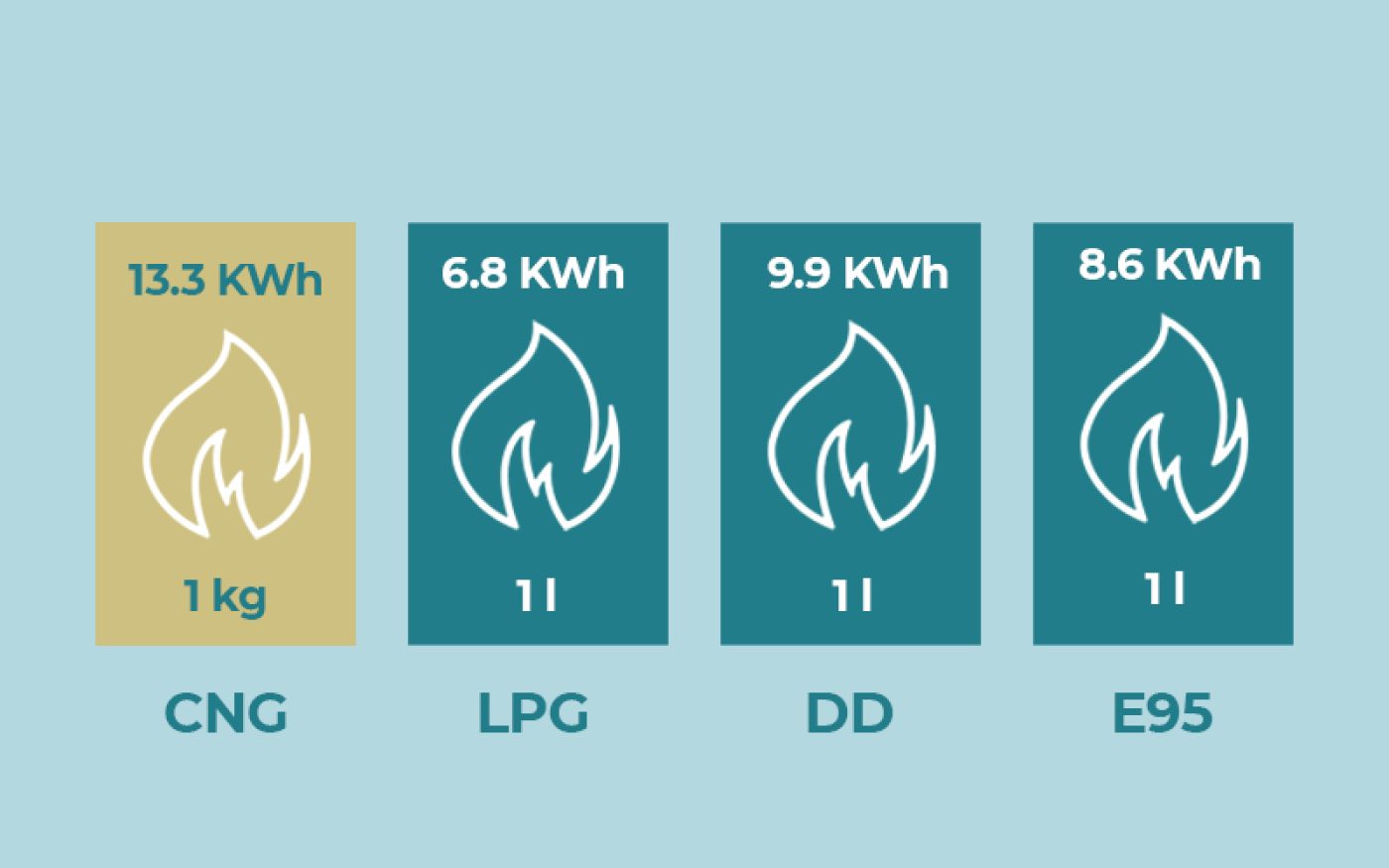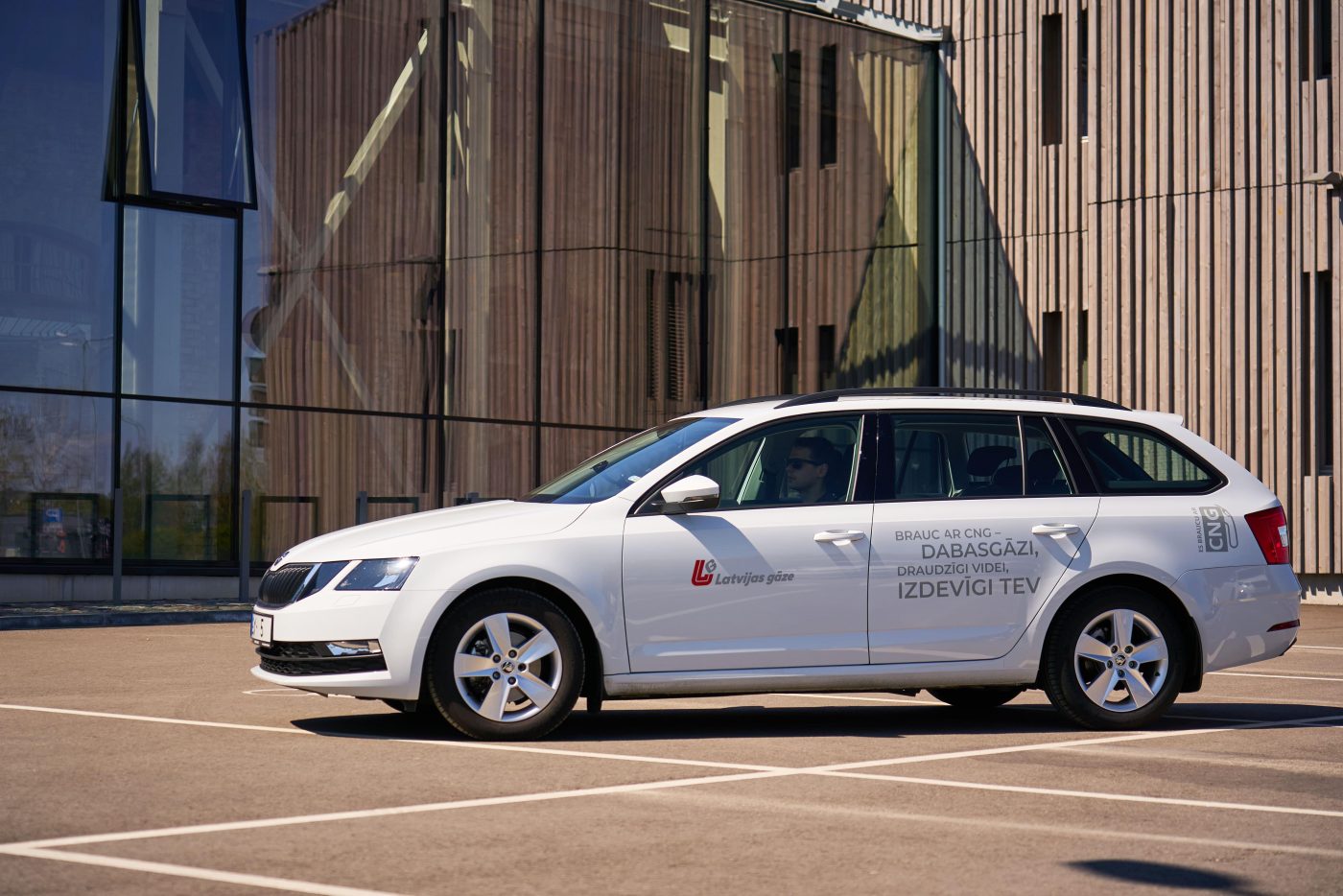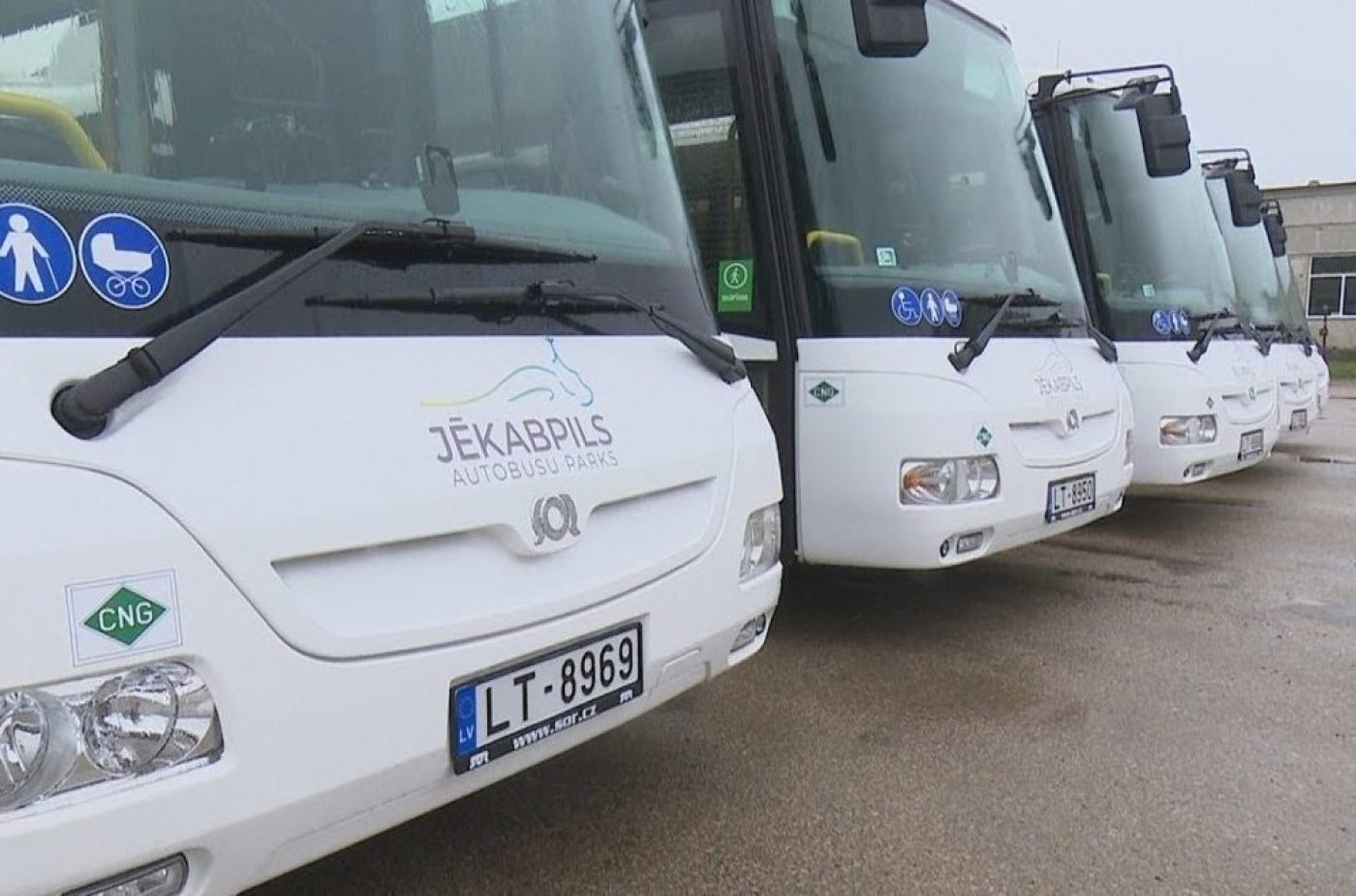CNG – a cost-effective solution for a greener future
CNG (compressed natural gas) is natural gas that is compressed to 1% of its original volume before its use (refuel of a car). CNG fuel evaporates rapidly in the air, therefore, it does not present a risk of explosion in the event of a leak, and it has a higher ignition temperature than petrol and diesel, thus reducing the risk of accidental ignition.
CNG is the cleanest combustible alternative fuel because its combustion produces significantly less emissions that are harmful to nature. CNG fuel is not only environmentally friendly but also economically advantageous; its use saves up to 40-60% on fuel costs compared to the petrol and diesel; moreover, the operation of CNG car is cheaper, CNG engine runs much quieter and more gently, no sound pollution is caused to the environment, and it also protects the car engine (suitable for public service providers in populated areas).
Distance travelled by EUR 10*

Significantly lower emissions
High energy value

*Example calculated by comparing the combined consumption of three Škoda Octavia Combi cars; 1.6 TDI 85KW DSG; 1.5 TSI 110KW DSG; 1.5 TGI 95KW DSG. Fuel prices included in the example: E95 EUR 1.32; DD EUR 1.25; CNG 0.98 EUR/kg
CNG for business – reduced transport cost, improved efficiency and environmental friendliness
Latvijas Gāze offers to build a private CNG fuelling station in the territory of a company. A private fuelling station will be a convenient and profitable solution for companies that already use or plan to buy CNG cars, lorries, or buses. Thanks to the low price of CNG compared to other fuels, the money invested in new vehicles will pay off quickly. Since 2020, the business energy efficiency programme of the development financial institution Altum has provided funding for the transition to more environmentally friendly vehicles, including CNG cars, and for the installation of local CNG fuelling stations on the territory of a company.
Eco Baltia development strategy puts important emphasis on reducing the environmental impact within the company. Therefore, the obvious decision was to gradually transition to using more environmentally friendly vehicles. In 2020, the first five waste collection trucks powered by CNG ,or compressed natural gas, started operating in Riga. One of the main environmental benefits that can already be seen is a significant reduction in CO2, 22% lower compared to previously used transport. No less important is the benefit of reducing fuel costs by up to 30%. In addition, these vehicles are quieter, which could be appreciated by residents. This is just the beginning of implementing the Eco Baltia development plan, and in 2021 the transportation fleet will be supplemented with five more CNG-powered vehicles.
CNG-powered buses have been running on the streets of Jēkabpils since the summer of 2019. We are pleased with the choice we made, because during these 2 years, we have seen their economic benefits – significant savings in fuel costs and profitable operation. The replacement of old diesel buses with the new compressed natural gas (CNG) vehicles has allowed us to reduce fuel costs by up to 40%, thus maintaining current fares and discounts, such as free trips for students. Passengers and the people of the city welcome the fact that CNG buses are less polluting in the city and are much quieter, more comfortable, and more modern.
We have been transporting cargo with CNG trucks for more than 3 months. We have a lot of work and the machines are used almost around the clock; in these months our 5 trucks have already consumed more than 20,000 kg of CNG fuel, driving around 250,000 km. Given the high fuel consumption, we are convinced of the efficiency of CNG fuel, as fuel costs have been reduced by about 15%. The use of CNG is very easy because of the nearby public filling station in Brocēni, where, like petrol or diesel, CNG can be refilled quickly and easily.
Refuelling
In Latvia, as in other European countries, both public and private CNG filling infrastructure is under development. With the development of natural gas infrastructure and technologies, private fuelling stations can be built anywhere in Latvia, not only in areas with a gas supply network. If the company is located next to the gas supply network; the fuelling station can be connected to a common network, but in the absence of such a possibility, it is possible to build a private fuelling station and supply liquefied natural gas.
Private Refuelling ECONOMIC

Individual natural gas compression equipment is ideal for low consumption and will be suitable for both households and small businesses with one to three CNG cars. Refuelling of one car can take 1-4 hours, depending on the installed capacity and equipment. ‘Economical’ refuelling can be commenced and used safely even at night because after refuelling the car's tank, the CNG station will automatically stop working. Installing individual natural gas compression equipment is simple, as they can even be added to standard household natural gas inlets.
Private Refuelling FAST

Fast CNG refuelling is as fast and convenient as refuelling with conventional fuels. By building a private CNG fuelling station in its territory, a company with a large fleet can significantly reduce fuel costs (the average CNG consumption of a passenger car per 100 km varies around 3-6 kg, depending on the model, while for cargo minibuses – from 9-12 kg), as well as perform a more accurate fuel consumption calculations while taking care of the environment.
Public refuelling

The network of fuelling stations continues to develop and expand: in Europe, natural gas and biomethane refuelling infrastructure is being developed in parallel, because biomethane has the potential to significantly green the supply and use of natural gas without fundamental improvements in either natural gas transmission or distribution (CNG fuelling stations in Europe). Currently, 7 CNG fuelling stations are publicly available in Latvia, but by the end of 2021, they will reach the number of 10.

CNG cars
CNG transport is widely used as it can be used in both urban and interurban traffic, significantly reducing environmental pollution and noise levels. The most common compressed natural gas cars use a dual-fuel engine, powered by both gas and petrol. When the natural gas runs out, the car automatically uses petrol. The CNG system in the cars is already built during the production process at the factories, so there is no reason to believe that it could be dangerous in any way. CNG cars, like other cars, are tested before operation, the gas cylinders are tested in different temperature, impact, and other conditions.


